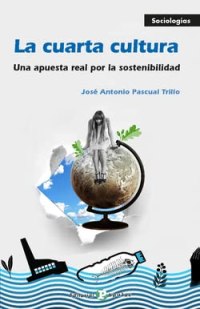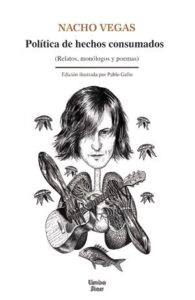
The fourth culture
by José Antonio Pascual Trillo
Culture and biology are inseparable facets, but while cultural aspects can change at a certain speed, biological aspects evolve at slower rates. Without variations in our biological equipment, our species has known three major types of cultures. From an initial hunting and gathering stage, the longest, we went through an agricultural and livestock phase, leading to the current industrial society based on fossil fuels. Everything indicates that we are in an exhausted stage, even though enormous inertia and interests try to prolong it, subjecting us to enormous environmental and social risks. Environmental degradation, financial and economic crises, the brutal increase in inequality and the vulnerability highlighted by the pandemic make evident the need for a change in our relationship with nature to recover real sustainability, very far from what the common marketing wants to sell us.
«The environmental crisis has reached such a level that it is no longer enough to try to enter a new phase of the industrial revolution where the development of renewable energies and the possibilities opened by new information and communication technologies reduce the damage (with be that an indispensable transition and initiated to a certain, although insufficient, extent). We need something more ambitious: to build a new way of living. “We need a change of culture.”
«Getting out of the quagmire in which we have gotten ourselves requires a change of direction on the scale of a cultural revolution capable of moving us to a new way of living together and inhabiting the planet, without economic growth as an objective, nor the hoarding of goods as a substitute for well-being or the depletion of nature as a norm of life. A revolution that leads us to the fourth global culture in our history as a species; a culture in which well-being, equitable distribution of wealth, cooperation, mutual aid and sustainability are the true recipients of our efforts. Many of us who have lived in the peak moments of the industrial phase (and, therefore, are responsible to some extent) will not see such a global change in its entirety, but if we do not glimpse its beginning it will be disastrous news for those who come after it. , who already warn that the world cannot remain the same. It is for them, the generations of the future, that it is urgent to embark on that path towards the fourth culture of humanity.
Jose Antonio Pascual Trillo (Madrid, 1958) has a degree in biological sciences and a postgraduate degree in environmental sciences. He has published various books on science and the environment, including: The Ark of Biodiversity (Casa de las Ciencias Award for the best popular science text), La vida menaceda, Revolutions in the natural sciences, The theater of science and the environmental drama o The management of public use in natural spaces. As a teacher he has served as Professor of biology and geology, teacher training advisor in experimental sciences or coordinator in Madrid of the Spanish Association for the Teaching of Earth Sciences (AEPECT), as well as director or speaker in numerous summer courses from the Menéndez Pelayo International University, Complutense of Madrid, University of Cantabria, etc. He has also held positions related to natural conservation and environmental protection, as technical advisor at the Nature Conservation Institute (ICONA) or general secretary of the Spanish Committee of the IUCN-World Conservation Union. With a long history in the ecological and environmentalist associative movement since its foundation in Cercedilla (Madrid) as part of AEPDEN, in 1976, he has been president of Friends of the Earth. In 1983 he was one of the 16 environmentalists and scientists who signed the Tenerife manifesto, considered the driving text of political environmentalism in Spain and which had the signature of support from Petra Kelly, founder of The Greens in Germany.
Source: https://algunoslibrosbuenos.com/la-cuarta-cultura


